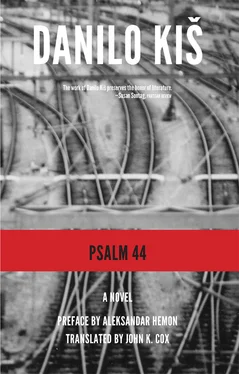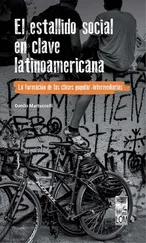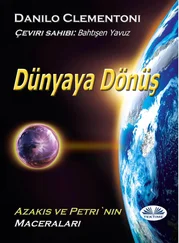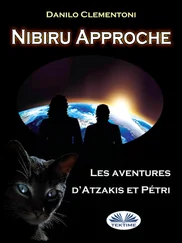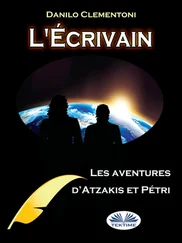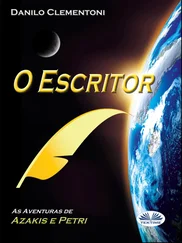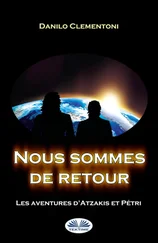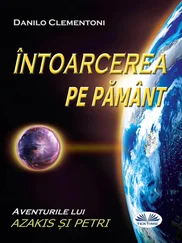Danilo Kiš - Psalm 44
Здесь есть возможность читать онлайн «Danilo Kiš - Psalm 44» весь текст электронной книги совершенно бесплатно (целиком полную версию без сокращений). В некоторых случаях можно слушать аудио, скачать через торрент в формате fb2 и присутствует краткое содержание. Год выпуска: 2012, Издательство: Dalkey Archive Press, Жанр: Современная проза, на английском языке. Описание произведения, (предисловие) а так же отзывы посетителей доступны на портале библиотеки ЛибКат.
- Название:Psalm 44
- Автор:
- Издательство:Dalkey Archive Press
- Жанр:
- Год:2012
- ISBN:нет данных
- Рейтинг книги:4 / 5. Голосов: 1
-
Избранное:Добавить в избранное
- Отзывы:
-
Ваша оценка:
- 80
- 1
- 2
- 3
- 4
- 5
Psalm 44: краткое содержание, описание и аннотация
Предлагаем к чтению аннотацию, описание, краткое содержание или предисловие (зависит от того, что написал сам автор книги «Psalm 44»). Если вы не нашли необходимую информацию о книге — напишите в комментариях, мы постараемся отыскать её.
Psalm 44 — читать онлайн бесплатно полную книгу (весь текст) целиком
Ниже представлен текст книги, разбитый по страницам. Система сохранения места последней прочитанной страницы, позволяет с удобством читать онлайн бесплатно книгу «Psalm 44», без необходимости каждый раз заново искать на чём Вы остановились. Поставьте закладку, и сможете в любой момент перейти на страницу, на которой закончили чтение.
Интервал:
Закладка:
“Where to, Doctor?” the kid asked.
“Do me a favor, Danijel,” Jakob said. “Give Dr. Leo my apologies and tell him I said thanks for everything.”
The boy looked as if he understood, so Jakob added only: “But not until tomorrow. No earlier. . Understand?. . Not before then.”
“Have a good trip, Doctor,” the boy said and began to row his wheelchair across the smooth parquet floor.
Chapter 13. Epilogue
It was on a humid day in summer that Jakob and Marija paid another visit to the camp. Jan had turned six years old, and he was wearing short pants of white linen and a light-colored shirt. He was a thin boy, with a look of curiosity and mild anxiety on his face. He had Jakob’s demeanor and the shapely, intelligent eyes of his mother. Usually an especially lively and inquisitive boy, he was now tight-lipped and furtive — perhaps just fatigued from the journey. But, ever since the bus stopped at the edge of the camp (it was a special tourist bus from a Warsaw company and it had been rented by the association of former prisoners for the commemorations of the anniversary of the liberation) and since the ceremonies and speeches had begun, accompanied by stifled tears and audible sobs, he had suddenly fallen silent. This left Marija worried. Without waiting for the ceremony to conclude or for the choir to intone its set of mournful songs, among them “The Girl I Adore,” Marija took the child by his hand and led him away from the crowd. She did this as a bus carrying American tourists drew up and, with its loud honking, drowned out the solemn invocation of “The Girl I Adore.” The eyes of the former camp inmates dimmed with reproach at this failure to respect the suffering and memories of others. Nevertheless their agitation grew even greater when the bus’s horn stopped blaring and was replaced by a hoarse bass voice from its radio. A man was singing in raspy tones about how great it was to be alive: “ C’est si bon . .” This brief, unpleasant confusion was sufficient for Marija, Jan, and Jakob to slip away unobserved. Marija noticed just then that Jan was crying quietly. “Didn’t my little man promise me he’d be a hero and not do any crying?” she asked. She already felt a touch of regret at having brought the boy along. Although the two of them had decided to show Jan everything that wasn’t too upsetting, she was sorry now that she had talked to him about the camp, even though what she had said was mild and sanitized, like some kind of fairy tale. But she had wanted to impress on Jan’s very brow the stamp of martyrdom and love: the same symbol that she and Jakob had made of their suffering. But Jan was meant to profit from all that. And Marija was proud of this mission of hers: to transfer to Jan the joyousness of those who were able to create life out of death and love. To bequeath to him the bitter happiness that had resulted from suffering that he had never felt and would never personally experience, but suffering that needed to be present in him as a warning, as joy: like a memorial obelisk.
In the display cases of the camp museum there are purses and wallets made of human skin. Made in Germany . Human skin from the tannery; when it’s thoroughly dried out, it resembles parchment. And any blank white sheet of paper inflames the human imagination, for all people are artists and are eager to leave some trace of themselves on earth. It was probably that very fact which impelled the Übermensch to inscribe his initials on this completely anonymous human skin, in this ideally white spot, thereby convincing us irrefutably of his artistic inclinations. Ars et artibus , art and delight, as venerable old Horace proclaimed, have always been among the essential characteristics of each and every worthy creation. And love is, as always, only a stimulant. Therefore one should not wonder that an Übermensch , in the form of some artistically inclined SS officer, would choose nothing other than a lady’s toiletry case as the object of his craft. To give such a case of human skin to a lady of Aryan blood would mean not only that he was confirming, clearly and palpably, his personal power and artistic proclivities, but also demonstrating and proving to the lady in question that human life is an extremely ephemeral phenomenon; human skin is neither as expensive nor as valuable as one might think. And, furthermore, if the stamp of the artist (that is to say, of a man who is no stranger to metaphysics) is imprinted on the bag in the form of a drawing or watercolor depicting a kitschy and infantile boat, sails filled with wind (a symbol of higher, metaphysical powers) or a stenciled lily (a symbol of bodily and spiritual innocence), then the effect is full and complete. The Übermensch triumphs in love and in art.
Two American women, faces freckled and wrinkled, sporting sunburns, big straw hats like chandeliers, and loud, multicolored nylon dresses, labored, with the help of a dictionary, to decipher untranslated details about the mattresses stuffed with women’s hair. Locks of hair of various colors, from blonde to red to black, mingled together in a heap and exuding sadness like the golden crowns of famous queens, princesses, or virgins found on a battlefield or in a museum basement. But the essential characteristic of an Übermensch is that he is not sentimental; he knows how to counter the metaphysics of death with the hard, forceful physicality of life. He knows how to take from death almost as much as he gives it. Übermensch —the very word mocks death. Such a man takes bone to make fertilizer, turns skin into purses and wallets and lampshades, produces mattresses and pillows from. . hair. It is only the vapor of human vanity and nullity that is sacrificed to death. I will teach you life — thus spoke Zarathustra.
Then a group of noisy kids arrived. They were wearing leather shorts and suspenders. One of them carried a bouquet of foxtail — a symbol of respect. They paused in front of the pile of eyeglasses. In this pile the size of a haystack there were glasses of all sizes and shapes. There were iron frames already beginning to show rust. The frames with cracked or shattered lenses bore more of a resemblance to the holes in a bare skull than to a bit of old metal. One of the boys raised a camera up to his eyes. It clacked against the glass in his own spectacles. The boy, however, remained blind to analogies and coincidences. Jan had already noticed that. Pointing to the heap, he asked, “Are these glasses the same as the ones that the young man in short pants is wearing?”
Marija stared at the yellowish, downy hairs on the boy’s legs.
“They are,” she noted. “They’re the same.” She knew what would come next, and she was already feeling uncomfortable. Jan said: “Well. . Why—?” But she didn’t allow him finish his question because she dreaded the answer.
“These are broken,” she said, “and that’s why they got thrown out.” The young man’s camera clicked and then he carefully wiped it off with a deerskin cloth and put it away. Next he crouched down in front of the pile. Only his head could be seen; he took off his glasses. From the pile he extracted another pair, with steel frames and one discolored and cracked lens. He put them on his nose. “ Hu-hu! Ich bin Jude! Ich bin Jude! ” Then the sharp clatter of the glasses as they were tossed back. And the sharp, needle-like sound of glass splintering, mixed with a peal of unruly laughter.
“Hu-hu! Ich bin Jude!”
Jakob had stopped in front of the cabinet in which the achievements of Nietzsche’s Center for Scientific Research were on display. In alcohol-filled jars floated freakish little unborn children, monsters of artificial crossbreeding and experimentation. This was too much for Jan. So Marija led the boy on further, letting Jakob know by way of silent gestures. A group being led by a docent stopped in front of the cases with the little malformed creatures and listened to the monotone explanation, as professional and as indifferent as could be. When Marija heard the cicerone’s voice starting up again behind her back, she tugged on Jan’s hand. “Same disgusting old song,” she said to herself. “You drop in five marks and the money goes right to his tongue. And the record starts spinning. Lazy, indifferent. Hideous, stupid Tower of Babel. . All for five marks.” Then she saw that the disgusting old organ grinder was right in her path. So when the visitors, including Jakob, started shuffling their feet and snapping photos, she let go of Jan’s hand and walked without a word into another room. She wanted to be alone, right then and there. (There are moments when selfishness and loneliness can prevail over love.) She couldn’t bear to hear the guide’s voice or the footsteps of people entering a place of execution as though it was a bazaar. It was cool and mostly dark in the room she had entered. The touch of the cool air was pleasant to her sweat-covered palms. She was out of range of the guide’s voice now. That allowed her to calm down. She could sense that Jakob and Jan were moving toward her solitude, toward the open door. They were holding hands. Without turning her head she could see the two of them, Jakob and the child. Jan was looking at the welter of unfathomable, fantastical objects without daring to ask anything at all. And Jakob still held him by the hand, tense in anticipation of questions and preoccupied with preparing answers. They had agreed to show the boy everything he could comprehend and take in without getting terrified. But at this point Jakob would have preferred for the child to ask no questions of him. Marija would be better at explaining it all to him.
Читать дальшеИнтервал:
Закладка:
Похожие книги на «Psalm 44»
Представляем Вашему вниманию похожие книги на «Psalm 44» списком для выбора. Мы отобрали схожую по названию и смыслу литературу в надежде предоставить читателям больше вариантов отыскать новые, интересные, ещё непрочитанные произведения.
Обсуждение, отзывы о книге «Psalm 44» и просто собственные мнения читателей. Оставьте ваши комментарии, напишите, что Вы думаете о произведении, его смысле или главных героях. Укажите что конкретно понравилось, а что нет, и почему Вы так считаете.
